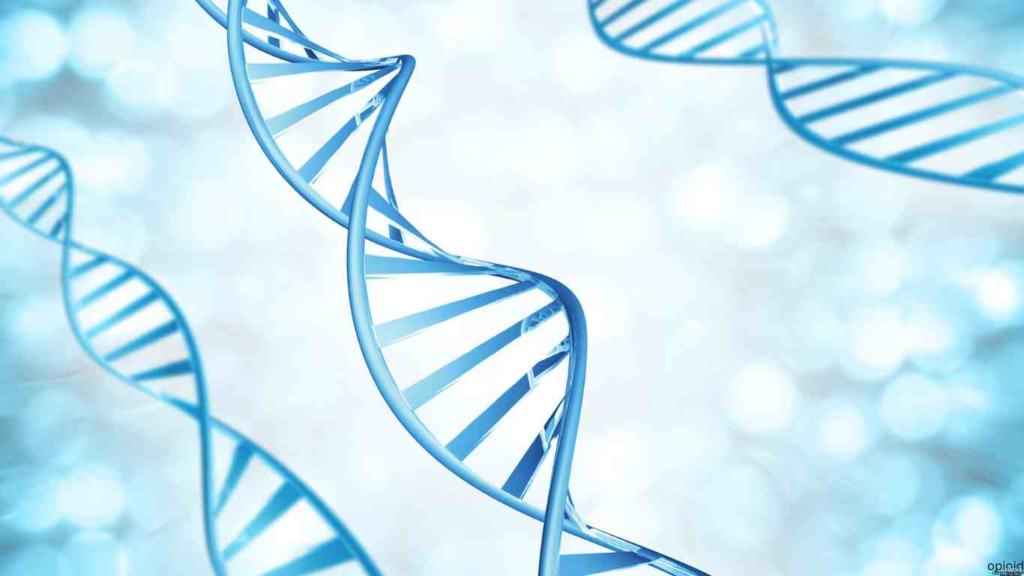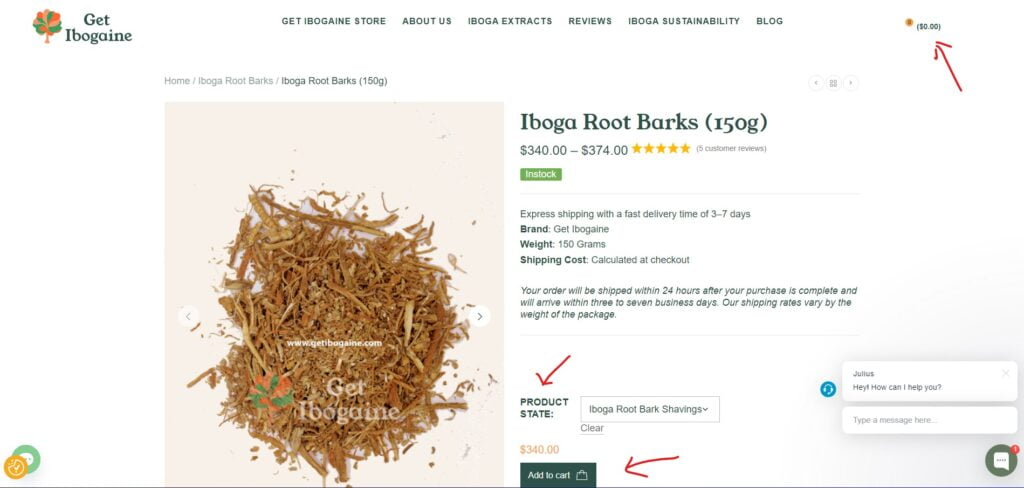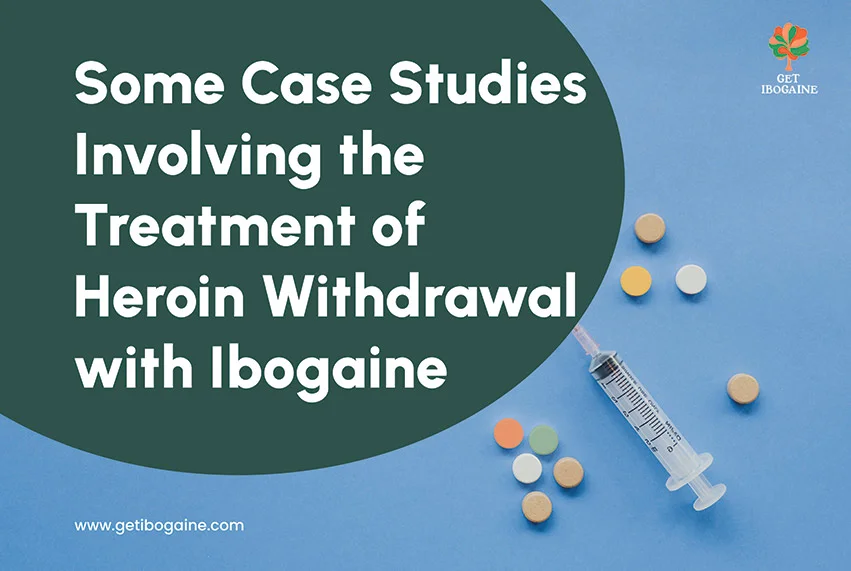In recent years, the therapeutic potential of Ibogaine as a treatment for addiction and mental health issues has garnered increasing attention. Derived from the Iboga plant, this powerful psychedelic substance has shown remarkable promise in helping individuals overcome various dependencies, which is why ibogaine therapy exists.

As interest in Ibogaine therapy grows, it is crucial to understand the nuances of its use, benefits, legal implications, and safety measures.
In this comprehensive guide, we will delve deeply into the world of Ibogaine, exploring its treatment potential, growing interest, legal status, safety precautions, and how to obtain it safely and legally. We will also address frequently asked questions and provide detailed insights into navigating the complexities of Ibogaine therapy.
Table of Contents
Understanding Ibogaine Treatment
Origins and Chemical Properties
Ibogaine is a naturally occurring psychoactive compound found in the root bark of the Tabernanthe iboga plant, which is native to Central Africa. Historically, the Bwiti tribe in Gabon has used it in spiritual and healing rituals.
The compound gained international attention for its unique ability to address drug addiction by resetting the brain’s neurological pathways.
Ibogaine’s chemical structure allows it to interact with various neurotransmitter systems in the brain, including serotonin, dopamine, and NMDA receptors. This multifaceted interaction contributes to its powerful therapeutic effects, making it a promising tool for treating addiction and facilitating personal growth.
Mechanism of Action
Ibogaine’s mechanism of action is complex and not entirely understood, but several key processes have been identified:
- Neuroplasticity: Ibogaine promotes neuroplasticity, helping the brain form new neural connections and pathways. This process is crucial for breaking the cycle of addiction and promoting long-term recovery.
- Opioid Receptor Modulation: Ibogaine acts on opioid receptors, reducing withdrawal symptoms and cravings associated with opioid addiction and opioid dependence. This action helps individuals detoxify with minimal discomfort.
- Psycho-spiritual Experience: The hallucinogenic properties of Ibogaine induce a profound introspective experience, allowing individuals to confront underlying psychological issues and traumas that contribute to their addiction.
Ibogaine vs. Traditional Opioid Addiction Treatments
Traditional addiction treatments often involve a combination of medication, therapy, and support groups. While these methods can be effective, they may not address the root causes of addiction or provide the transformative experience that Ibogaine offers. We also have an article on ibogaine the key for drug addiction.

Opioid overdose is the primary cause of accidental death in the U.S., with approximately 78 Americans dying every day from an opioid overdose, highlighting the need for more effective treatments. Key differences include:
- Rapid Detoxification: Ibogaine can significantly reduce withdrawal symptoms and cravings within a single session, whereas traditional methods may require prolonged use of medications like methadone or buprenorphine.
- Holistic Approach: Ibogaine therapy addresses both the physiological and psychological aspects of addiction, providing a comprehensive treatment experience.
- Potential for Lasting Change: Many individuals report profound personal insights and behavioral changes following Ibogaine treatment, which can support sustained recovery and personal growth.
The Growing Interest in Ibogaine
1. Therapeutic Potential
The therapeutic potential of Ibogaine has contributed significantly to its growing popularity. Believed to possess anti-addictive properties, Ibogaine offers individuals struggling with addiction a promising avenue for recovery. Its ability to reset neurological pathways and reduce opioid cravings has made it an attractive option for those seeking an alternative to traditional addiction treatments.
2. Transformative Experience
Ibogaine’s psychoactive nature provides a platform for introspection and emotional healing. During the experience, individuals often confront deep-seated traumas and psychological issues, leading to a sense of resolution and personal transformation. This profound experience can be a catalyst for long-term recovery and personal growth.
3. Research and Advancements
Increasing research and exploration of Ibogaine’s effects have been crucial in fueling interest in this compound. Scientists and healthcare professionals are drawn to the potential breakthroughs that Ibogaine could offer in addiction recovery and mental health support. Recent studies have focused on:
- Efficacy and Safety: Clinical trials and observational studies are investigating the safety and efficacy of Ibogaine in treating various substance use disorders.
- Neurobiological Effects: Research explores how Ibogaine affects the brain’s neurochemistry and promotes neuroplasticity.
- Integration with Therapy: Studies examine how Ibogaine can be integrated with traditional therapeutic approaches to enhance overall treatment outcomes.
Given the unique cardiac risks associated with Ibogaine, proper medical monitoring is essential to ensure safety during treatment.
Legal Implications of Using Ibogaine
Global Legal Status
The legal status of Ibogaine varies widely between countries. While some nations have strict prohibitions on its use, others have more permissive regulations or allow its use under specific conditions. Understanding the legal landscape is crucial for those considering Ibogaine therapy.
If you are reading this article from India then you might be wondering if ibogaine therapy can be done in India, we have an amazing article on that.
Legal Status in the United States
In the United States, Ibogaine is classified as a Schedule I controlled substance at the federal level. This classification indicates that it is considered to have a high potential for abuse and no accepted medical use. Consequently, the sale, possession, and use of Ibogaine are restricted or prohibited by law.
However, there are some exceptions:
- Research Purposes: Certain states may allow Ibogaine to be used for research purposes under strict regulatory oversight.
- Medical Supervision: Sometimes, Ibogaine may be administered under specific medical supervision in clinical settings.
Securing ibogaine for research requires special permission from the FDA and the Drug Enforcement Administration due to its Schedule I classification.
Legal Risks and Consequences

Understanding the legal risks associated with Ibogaine is crucial to avoid severe consequences. Here are the potential legal repercussions in the United States:
- Fines and Penalties: Possessing a controlled substance like Ibogaine can result in a fine of up to $10,000.
- Criminal Convictions: A criminal conviction for possession can lead to imprisonment for up to a year.
- Combination Penalties: In some cases, individuals may face both fines and imprisonment.
Despite these risks, ongoing research and advocacy efforts aim to reevaluate Ibogaine’s legal status and recognize its potential therapeutic benefits.
Where to Buy Ibogaine

1. Online Platforms
When considering purchasing Ibogaine online, exercising caution and conducting thorough research is essential. Key factors to consider include:
- Product Authenticity: Ensuring the authenticity of the Ibogaine being purchased is paramount. Due to the lack of regulation, there is a significant risk of receiving counterfeit or substandard products.
- Quality Control: Verifying the quality and purity of Ibogaine obtained online is challenging, and it poses serious health risks to individuals.
- Customs and Legal Implications: Importing substances like Ibogaine through customs can have severe legal consequences if the package is intercepted.
2. Licensed Medical Facilities and Retreat Centers
Specialized ibogaine clinics and retreat centers offer Ibogaine-assisted therapy under medical supervision.
Selecting a reputable ibogaine clinic is crucial for safe and effective treatment. These facilities provide a safe and supportive environment for undergoing Ibogaine treatment, with qualified healthcare professionals overseeing the process.
3. Choosing Reputable Sources
When seeking Ibogaine for personal use or therapy, it is crucial to source it from reputable and reliable providers. One notable platform is GetIbogaine.com, which offers information on Ibogaine therapy, treatment protocols, and the potential benefits of using Ibogaine for addiction recovery.
This site is dedicated to providing high-quality Ibogaine and ensuring the safety and well-being of its users. It is also advisable to seek treatment at a licensed medical facility to ensure the safest and most supportive environment for addiction recovery.
Safety Precautions in Addiction Treatment with Ibogaine
Medical Evaluation and Screening
Before considering Ibogaine therapy, it is essential to undergo a thorough medical evaluation to determine suitability for treatment. This process typically includes:
- Health History Assessment: Review past and current medical records to identify potential risks or complications.
- Contraindications Review: Evaluating specific factors that may indicate that Ibogaine treatment is unsuitable, such as heart conditions, liver problems, or psychiatric disorders.
Opioid Withdrawal Symptoms, Contraindications, and Health Considerations
Certain health conditions and medications can interact negatively with Ibogaine, potentially leading to adverse effects. It is crucial to:
- Avoid Ibogaine if You Have Certain Health Conditions: Individuals with underlying health conditions, such as heart conditions, liver problems, or psychiatric disorders, should refrain from using Ibogaine without proper medical guidance.
- Avoid Ibogaine if You Are on Certain Medications: Drug interactions can have severe consequences. Consulting with a healthcare professional is essential to assess the safety of incorporating Ibogaine into your treatment regimen, especially if you are on prescription medications or supplements.
Proper Medical Oversight
Proper medical oversight is crucial for ensuring the safety and efficacy of Ibogaine therapy. This includes:
- Pre-Treatment Screening: Conducting a thorough examination to assess overall health status and readiness for treatment.
- Monitoring During Treatment: Ensuring medical supervision during the Ibogaine experience to manage any potential risks, including those related to opioid withdrawal.
- Post-Treatment Support: Providing follow-up care and support to ensure a smooth transition and sustained recovery.
Frequently Asked Questions about Ibogaine
Common Concerns and Misconceptions
1. Is Ibogaine a Cure for Addiction?
Ibogaine is not a cure for addiction but rather a powerful tool that can treat opioid addiction and assist individuals in breaking free from substance dependencies. It can serve as a catalyst for change, helping individuals address the root causes of their addiction and facilitating personal growth and recovery.
2. What Are the Risks of Ibogaine Therapy?
While Ibogaine therapy has shown promise, it is not without risks. Potential side effects can include heart complications, psychological distress, and interactions with other medications. It is crucial to undergo a thorough medical evaluation and receive treatment under proper medical supervision.
3. Can Anyone Undergo Ibogaine Therapy?
Not everyone is a suitable candidate for Ibogaine therapy. Individuals with certain health conditions, such as heart disease, liver problems, or psychiatric disorders, may not be eligible for treatment. A comprehensive medical evaluation is essential to determine suitability.
Expert Insights and Recommendations
Experts in the field of Ibogaine therapy emphasize the importance of:
- Choosing Reputable Providers and Treatment Centers: Ensuring that Ibogaine is sourced from reputable and reliable providers and treatment centers is crucial for safety and efficacy.
- Receiving Proper Medical Supervision: Ibogaine therapy should be undertaken under the supervision of qualified healthcare professionals, which can help manage potential risks and enhance treatment outcomes.
- Staying Informed: Keeping abreast of the latest research and advancements in Ibogaine therapy can provide valuable insights and support informed decision-making.
Embracing the Potential of Ibogaine
Responsible Use and Ethical Considerations
As with any powerful substance, responsible use and ethical considerations are paramount when exploring Ibogaine therapy. It is essential to:
- Follow Legal Guidelines: Adhering to legal regulations regarding using and possessing Ibogaine is crucial to avoid legal repercussions.
- Prioritize Safety: Proper medical evaluation and supervision during Ibogaine therapy are vital for managing potential risks and ensuring a safe experience.
- Seek Support and Guidance: Consulting with qualified healthcare professionals and seeking support from reputable sources can enhance the safety and efficacy of Ibogaine therapy.
Support and Guidance for a Safe Experience
The GetIbogaine team provides expert guidance and support for individuals considering Ibogaine therapy. With a wealth of experience and a commitment to safety and well-being, GetIbogaine offers a trusted source for obtaining Ibogaine and navigating the complexities of addiction treatment.
Final Thoughts and Future Prospects
Ibogaine holds significant potential as a transformative tool for addiction treatment and personal growth. By embracing its therapeutic benefits and approaching its use responsibly, individuals can embark on a journey toward recovery and holistic well-being.
As research and advocacy efforts continue to evolve, the future of Ibogaine therapy looks promising. Staying informed and seeking guidance from qualified professionals can help individuals make informed decisions and maximize the potential benefits of this powerful substance.
In conclusion, exploring Ibogaine for addiction treatment requires careful consideration of legal, safety, and sourcing factors. By educating yourself on the legality of Ibogaine, researching reputable sources, and prioritizing safety precautions, you can make informed decisions about incorporating Ibogaine into your wellness journey.
Whether you choose to explore Ibogaine therapy at a specialized clinic, a retreat center, or through online platforms like GetIbogaine, prioritize your well-being and seek guidance from qualified professionals to ensure a safe and supportive experience.
Embrace the potential of Ibogaine as a tool for healing and growth, and remember that support and guidance are essential components of your journey toward wellness and recovery. You can also read Ibogaine the key to Ending Drug Addiction.
Additional Resources
- National Institute on Drug Abuse (NIDA): Reliable source for information on controlled substances and addiction treatment regulations.
- PubMed: Academic database for accessing research studies on the efficacy and safety of Ibogaine therapy.
- Substance Abuse and Mental Health Services Administration (SAMHSA): This agency offers insights into substance abuse treatment protocols and regulations.
- Multidisciplinary Association for Psychedelic Studies (MAPS): Provides research and resources on psychedelic-assisted therapy, including Ibogaine.
- World Health Organization (WHO): This organization offers global perspectives on substance use disorders and treatment approaches, including Ibogaine therapy.
By following legal guidelines, prioritizing safety, and seeking reputable sources, you can navigate the process of obtaining Ibogaine for therapeutic purposes with confidence and clarity.


